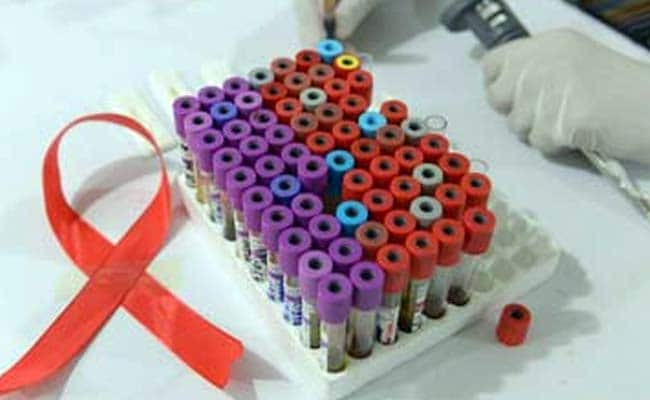By Jaideep MazumdarPoliticians railed and ranted and pastors warned of divine wrath, but the hundreds queuing up outside the lone liquor outlet that opened in Aizawl's Millenium Center mall on Monday, after 18 years of prohibition, remained unfazed. This predominantly Christian hill state, surrounded on three sides by Myanmar and Bangladesh, had gone `dry' under pressure from the hugely influential Church in 1997.
Excise department officers estimate that more than 1,000 people bought liquor from the Mizoram Food and Allied Industries Corporation (Mifco) outlet on Monday and Tuesday -the first day's sales stood at Rs 2.7 lakh and Tuesday's, at Rs 3.46 lakh.
After winning the state elections in 2013, the Congress government initiated the process of amending the Mizoram Liquor (Total Prohibition) Act, 1997 to allow sale of a fixed monthly quota of liquor to permit holders. The Church, especially the Presbyterian order which claims a membership of a little over half the state's 10 lakh-odd population, vehemently opposed the move. But the government, backed by some civil society organizations, went ahead with the framing and enactment of the Mizoram Liquor Prohibition & Control Act 2014, last July.
Licenses were awarded to state public sector units to open five liquor outlets in Aizawl on March 16, but Church-backed opposition ensured that only one outlet could open at a shopping mall. Mizoram excise minister R Lalzirliana said negotiations were on between the state PSUs holding the liquor licences and elders of the localities where wine shops are to be set up. "All five outlets in Aizawl will open soon and after that, we'll start awarding licenses for liquor vends in other districts too," he says.
The wait for alcohol has been a long one for Lalthlamuana, a 62-yearold trader who is one of the 55,000odd (and the number is rising by the day) permit holders. " After 1997, we had to rely on bootleggers who not only charged exorbitant prices, but also supplied poor quality and adulterated liquor," he says.
The state government had argued that prohibition had not been effective and it was losing revenue as liquor was being smuggled in from neighbouring Assam. There was also lethal spurious liquor in circulation.S Kapkima, a senior doctor at the Civil Hospital in Aizawl, says that over the last 15 years, the number of patients suffering from ailments caused by consumption of spurious liquor had increased exponentially .Also, the government argued, prohibition was fuelling substance abuse.
"Nowhere in the world has prohibition worked. It is much better to control liquor consumption, as the new law aims to," says the minister.
Under the new law, a permit holder (the licence costs Rs 500 a year) can buy six bottles (750 ml) of liquor and ten bottles each of beer and wine per month. As of now, only two brands of Indian whisky are available. "We've kept the prices lower than Assam to discourage smuggling in liquor from that state," says excise department deputy commissioner Ngurchungnunga. He adds that gradually , more brands of IMFL (Indian-made foreign liquor) will be available. The government also plans to give bar licenses. The Aizawl Club, a favourite with the city's elite, has been given one and will start serving liquor soon.
Church leaders and pastors are livid. "The new law is a gross violation of the constitution of the Presbyterian Church of India and against the rules framed by the Presbyterian Church of Mizoram," says Rev Chuauthuama, a former pastor and prohibition's most vociferous supporter in the state. He raised a black flag at his residence to mark March 16 as a `dark day'. "Before prohibition was imposed, alcoholism was rife. It broke many families. This was why the first generation of Christian converts in Mizoram decided in 1910 to call for prohibition," he says.
Former pastor Rev Zaihmingthanga says the devout will resist the move. "My locality (Khatla, which was to have a wine shop) has resolved not to allow any liquor outlets here," he says. He admitted that local churches -there are over 250 churches in Aizawl, a world record for cities -were behind the `ban' on opening of liquor outlets.
Michael Lalmanzuala, who was the former chief secretary of Mizoram, advocates a complete separation of the Church and the state."The Church has no right to interfere in matters of the state. Mizoram cannot be totally dependent on doles from the Union government and has to raise its own revenue," he argues. He says that `zu', the local rice beer, was an integral part of Mizo culture and strict social norms ensured people drank responsibly. "It was only after the British missionaries vilified `zu' and promoted prohibition that alcohol became a problem for Mizos," says the former bureaucrat. Dr Thanpuii, vice president of Mizo Hmeichhe Insuihkhawn Pawl (MHIP), an influential organization to which nearly every Mizo woman belongs, says prohibition hasn't worked and the 2014 Act, if implemented properly, can solve the problem of alcoholism and drug addiction.
But the cheer may not last long.Lallungmuana, head of sociology at Pachhunga University College, predicts the government will reimpose prohibition before the state goes to polls in 2018. Opposition leader Zoramthanga of the Mizo National Front (MNF) has already promised to re-introduce it if his party is voted to power.
Some denominations like the Presbyterians and the Pentecostals have warned that those who hold permits will not be allowed to take on leadership roles in church activities. But going by the hundreds who are applying for permits every day , such threats seem to have had little effect.
 Aizawl, Mar 27 : Former Mizoram chief minister Brig Thenphunga Sailo died here today, family sources said.
Aizawl, Mar 27 : Former Mizoram chief minister Brig Thenphunga Sailo died here today, family sources said.












